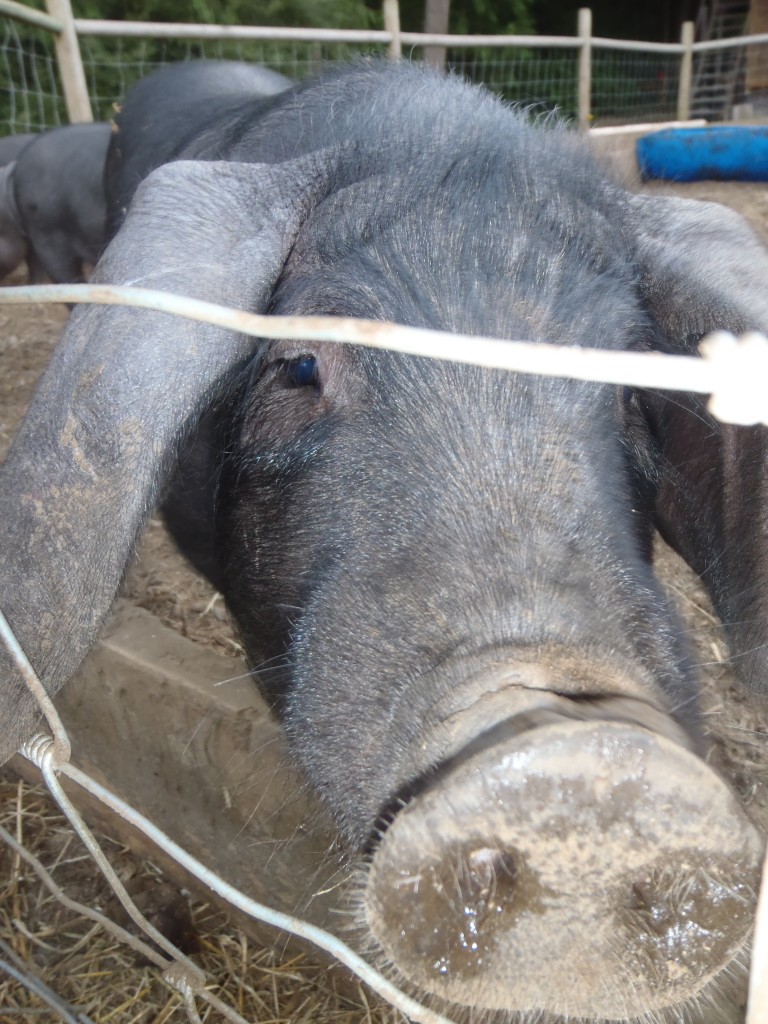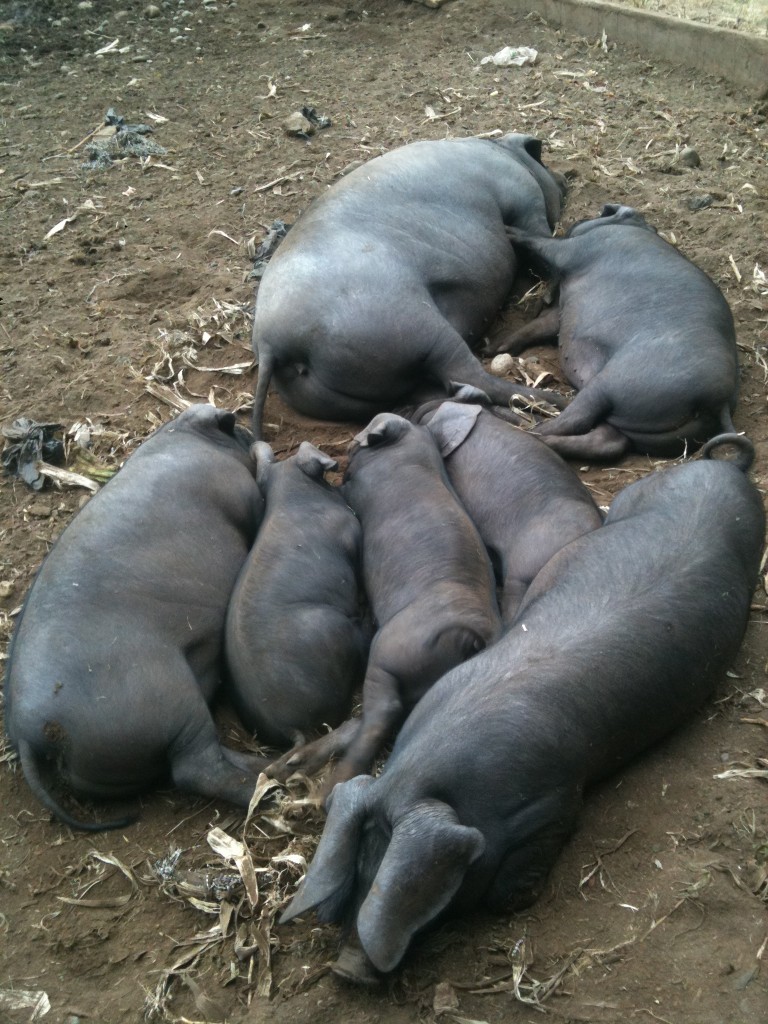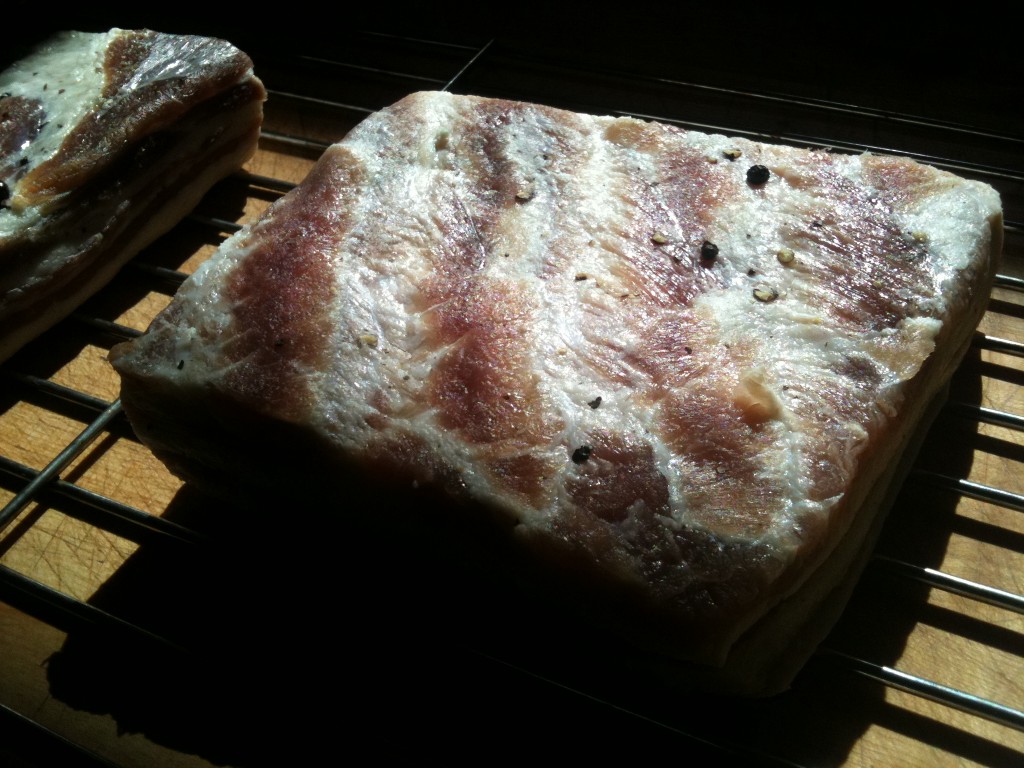By Zara Fischer-Harrison
We’ve seen the Is it local? episode on Portlandia, and laughed at its ridiculousness. And we’ve seen the heirloom tomatoes at the farmers market with all of their charismatic bumps and scabs as we balk at the price tag. On menus we have read Red Fife wheat, or Berkshire Pork in an item’s ostentatious description. But why should we care?
It’s important.
Genetic biodiversity is losing steam. Noah would be sorely disappointed in the procession off that ark compared to a mere fifty years ago. In an effort to raise bigger organisms faster, shortsighted agriculturalists have been streamlining, and at the same time have been putting their own economic and environmental futures in jeopardy. The market favours those animals for which there is demand, and which turn a profit. The breeds that, instead, take their sweet time to grow, or have not yet had their time in the food-marketing spotlight, get the short end of the stick. Money speaks louder than good sense. The rare breeds become even rarer when there is no demand. With this in mind, asking where your chicken comes from at a restaurant, or what breed it is, or how it is raised, becomes an act of support for the perpetuation of interesting and endangered organisms. When the chef realizes that the customer would value eating, and pay for, Chanteclair chicken, the chef will add it to the menu, and in turn, farmers will have a reason to raise them. The Slow Food Ark of Taste is fundamentally based on this concept, putting those organisms that are on the verge of extinction, but which have unique and culinarily significant characteristics, at centre stage with the intention of helping to grow demand.
Thankfully there are some exceptionally brilliant human beings who are doing what they can to keep the gene pool swimming strong for breeds that tend to be smaller, take longer to grow, or produce more delectable and historically significant yields. These farmers are taking care of our future. They see the value in raising plants and animals that do way more than just fill human tummies.
One such rare breed of pigs, called the Large Black, sometimes referred to as English Blacks, is making its mark on Vancouver Island. It is listed as critically endangered on the American Livestock Breeds Conservancy.
There are at least three farmers in the Cowichan Valley and Nanaimo with productive sows and boars, and one on Pender Island. There are only twelve breeders listed on Rare Breeds Canada across the entire country stewarding this gene pool, and they are going to have to work together to perpetuate the breed well enough not to compromise its integrity or distinction. At this point, the farmers on Vancouver Island are coming up against a roadblock. They would prefer to infuse genetic diversity even more so at a micro level into their herds. Because there are so few sows and boars that are being raised for production, rather than meat, inline breeding is beginning to reach its limits in the west. The Vancouver Island farmers are thinking about taking their best sows on a field trip, five provinces away, to set up wild love affairs with handsome Ontario boars. But what happens in Ontario, won’t stay in Ontario.
The sows will hopefully conceive, their litters birthed back home in the comfort of temperate BC. This all in an effort to increase supply to kitchens such as Organic Fair and the Sooke Harbour House. These docile, resilient, floppy-eared, pig powerhouses will grow to over 400lbs, and produce beautifully marbled and succulent flesh perfect for bacon and other porcine delights.
Originally published on Food and Passion


